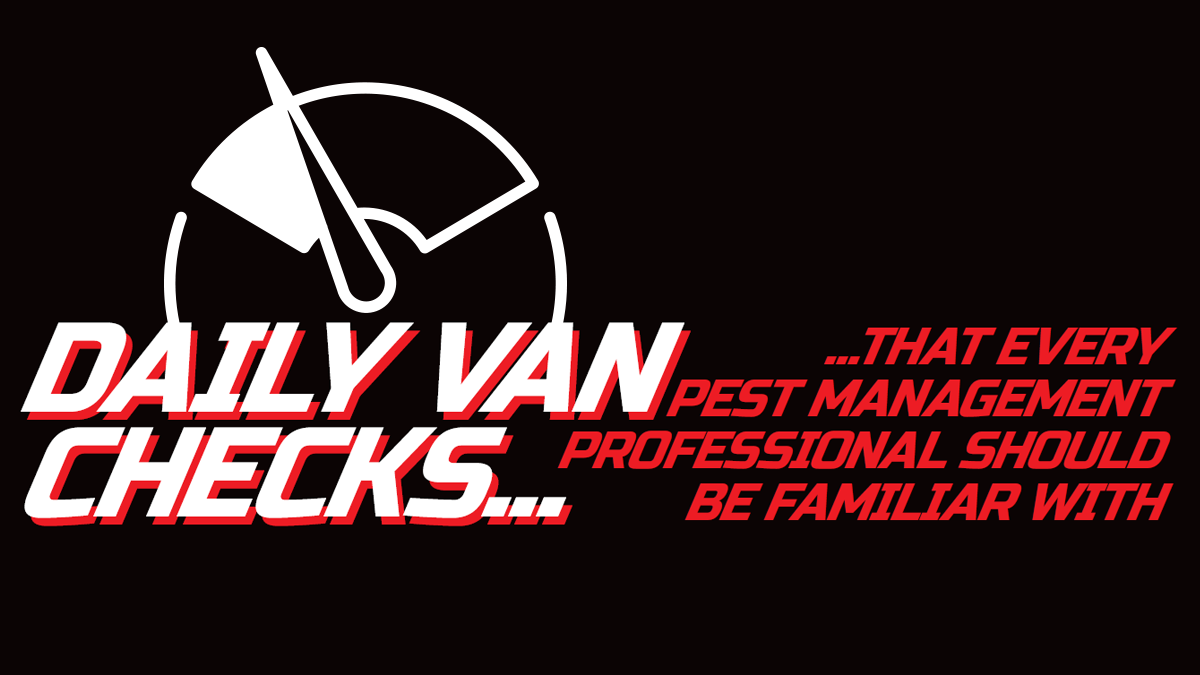Business feature | PPC95 May 2019
Faulty vehicles are the bane of every fleet operator. They can cost your business a lot of time and money while you wait for them to be fixed. In fact, the cost of having a vehicle off the road can be as much as £1,000 per day.

Even worse, they can cause accidents
involving your drivers. According to government figures, vehicle defects contributed to 1,687 accidents and 2,586 casualties on Britain’s roads in 2016 [1].
For business-critical fleets, such as professional pest controllers, it’s even more important to keep your vehicles in good, roadworthy condition. Unexpected downtime may leave your controllers unable to perform their work, which may lead to reputational damage, lost contracts or worse.
The importance of daily checks
Fortunately, many vehicle faults can be prevented without too much difficulty. The Driver and Vehicle Standards Agency (DVSA) says that almost half of all defects found during MOT tests could have been prevented by simple, regular checks and maintenance gov.uk/government/news/mot-fails-could-be-avoided-by-basic-car-maintenance
Key checks to make
As a result, the DVSA, the Freight Transport Association (FTA) and the Fleet Operator Recognition Scheme (FORS) all recommend that drivers carry out daily walk-around checks before they take their vehicle out each day.
These checks should cover everything from the brakes (do they feel loose or unresponsive? Is there tension in the handbrake?) and tyres (are they at the right pressure? Is the tread on them deep enough?) to the exhaust (does it produce any unusual noises or abnormal smoke?).
Making time
Of course, that’s more easily said than done. Proper walk-around checks take time, so fleet managers must ensure that drivers’ schedules leave enough room to perform them each day. Your drivers must also be taught how to conduct these checks, how to spot defects and how to report them.
You’ll also need to put in place a robust system to ensure that, when a driver does report a fault, it is repaired as quickly as possible. And good record-keeping is essential, too. For O Licence holders and vehicles over 3.5t the DVSA requires that reports of any defects be kept for a minimum of 15 months, along with details of how they were repaired.
[1] assets.publishing.service.gov.uk/government/uploads/system/uploads/attachment_data/file/668504/reported-road-casualties-great-britain-2016-complete-report.pdf
CHECK THESE EVERY DAY...
- FLUIDS - Check brake fluid, windscreen, oil reserves.
- WINDSCREEN - Is there any damage to the drivers' view? Are your wipers clearing the windscreen?
- BRAKES - Do they feel loose or unresponsive? Is there tension in the handbrake?
- LIGHTS - Are all lights fully working?
- EXHAUST - Does it produce any unusual noises or abnormal smoke?
- STEERING - Is your steering responsive?
- DASHBOARD - Always check for warning lights on the dashboard – and read the manual to see what they mean.
- SUSPENSION - When applying weight to the corner of the vehicle does it quickly spring back into position?
- TYRES - Check tyre pressure and tyre tread (legal minimum is 1.6mm).
MORE INFORMATION
leaseplan.co.uk
Source: PPC95